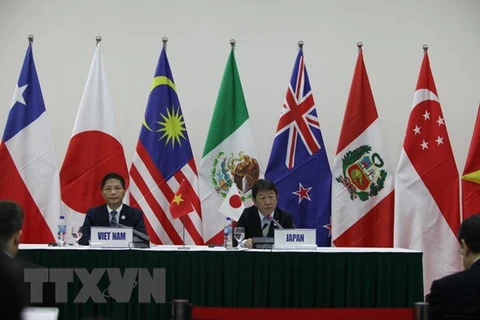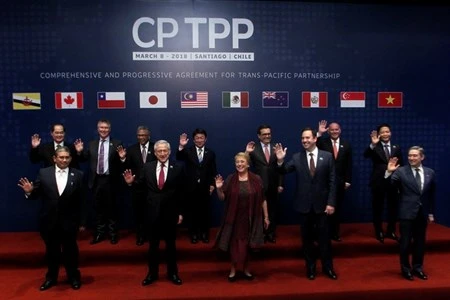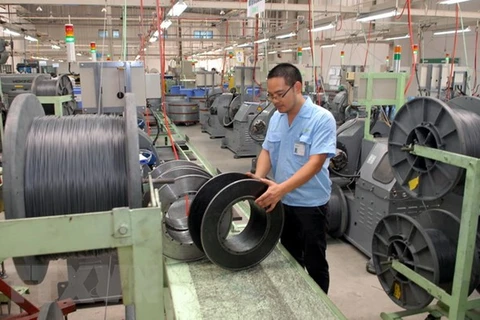Hanoi (VNA) – Vietnam needs to step up reforms to benefit more from the Comprehensive and Progressive Agreement for Trans-Pacific Partnership (CP TPP) signed by 11 nations in Chile on March 8, said Hoe Ee Khor, Chief Economist of the ASEAN+3 Macroeconomic Research Office (AMRO) in Singapore.
The economist said that, without the US, the new version of the TPP is still very important to the 11 remaining nations as it will span a market of nearly 500 million people and the member states together amount to more than 13 percent of global GDP and 15 percent of global trade.
Among five Asian members of the CP TPP, which are Brunei, Japan, Malaysia, Singapore and Vietnam, some have greatly benefited from surges in foreign direct investment (FDI), he noted, citing Vietnam having received large FDI inflows into the garment and textile industry and other manufacturing sectors since many investors want to get access to the CP TPP market.
More foreign investment will be drawn into the country after the agreement enters into force. It was forecast that Vietnam’s FDI growth will exceed 2 percent in 2025 and 6 percent in 2030, he added.
Though some 20 provisions of the original TPP have been suspended, the CP TPP remains a high-quality free trade agreement, including many provisions in non-tariff barriers, rules of origin, competition, labour protection, intellectual property rights and dispute settlement.
To make the full use of the deal, member nations must accelerate restructuring. This is why some countries see the CP TPP as a driving factor for their internal reforms.
He suggested Vietnam step up reforms in several areas, including State-owned enterprises, labour standards, small- and medium-sized enterprises and business facilitation, in a bid to aid economic growth and improve competitiveness.-VNA
The economist said that, without the US, the new version of the TPP is still very important to the 11 remaining nations as it will span a market of nearly 500 million people and the member states together amount to more than 13 percent of global GDP and 15 percent of global trade.
Among five Asian members of the CP TPP, which are Brunei, Japan, Malaysia, Singapore and Vietnam, some have greatly benefited from surges in foreign direct investment (FDI), he noted, citing Vietnam having received large FDI inflows into the garment and textile industry and other manufacturing sectors since many investors want to get access to the CP TPP market.
More foreign investment will be drawn into the country after the agreement enters into force. It was forecast that Vietnam’s FDI growth will exceed 2 percent in 2025 and 6 percent in 2030, he added.
Though some 20 provisions of the original TPP have been suspended, the CP TPP remains a high-quality free trade agreement, including many provisions in non-tariff barriers, rules of origin, competition, labour protection, intellectual property rights and dispute settlement.
To make the full use of the deal, member nations must accelerate restructuring. This is why some countries see the CP TPP as a driving factor for their internal reforms.
He suggested Vietnam step up reforms in several areas, including State-owned enterprises, labour standards, small- and medium-sized enterprises and business facilitation, in a bid to aid economic growth and improve competitiveness.-VNA
VNA
























